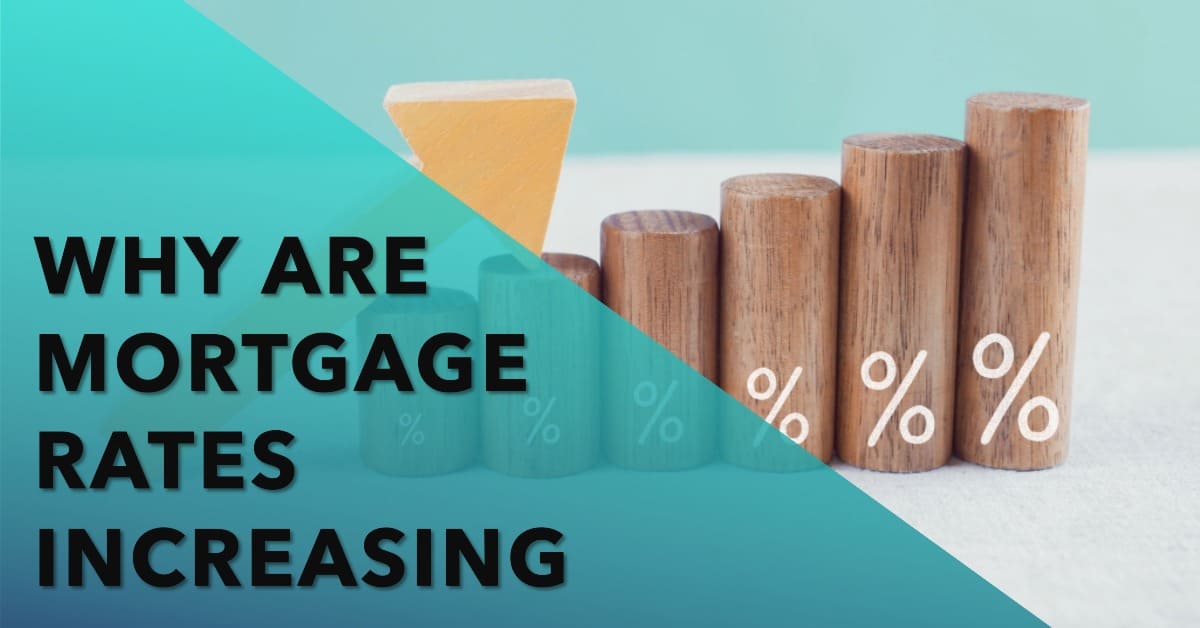If you are thinking of buying a home or refinancing your existing mortgage, you might be wondering why mortgage rates are so high. High inflation, one of the most potent culprits, sits at the forefront of the problem. When the cost of living climbs, the Federal Reserve often responds by raising interest rates to cool down the economy.
These rate hikes ripple through the financial system, impacting the cost of borrowing money, including mortgages. Think of it as a rising tide lifting all boats, including the one carrying your mortgage dreams.
The demand for mortgages plays a crucial role. When the housing market is booming, with more eager buyers vying for limited properties, lenders can afford to charge higher rates knowing there will be plenty of takers.
This is further fueled by a recent drop in demand from major investors in mortgage-backed securities, who are becoming skittish due to recessionary fears. With fewer players buying these securities, the cost of funding mortgages goes up, translating to higher rates for borrowers.
Table of Contents
Why Are Mortgage Rates So High?
The main factors driving up mortgage rates
- Inflation: Inflation, the general increase in the prices of goods and services, reduces the purchasing power of money, making it more expensive for lenders to lend out money. The Federal Reserve has responded to inflation by raising short-term interest rates, causing longer-term rates, including mortgages, to rise.
- Mortgage-backed securities: The demand for Mortgage-Backed Securities (MBS), bonds backed by a pool of mortgages, influences mortgage rates. Currently, low demand for MBS due to recession fears and lower income expectations from mortgages contributes to higher rates.
- Treasury yields: Annual returns on Treasury securities affect interest rates, including mortgages. Rising Treasury yields, driven by higher inflation expectations and real interest rates, lead to higher mortgage rates.
The impact of high mortgage rates on homebuyers and homeowners
High mortgage rates negatively affect both homebuyers and homeowners:
- Higher monthly payments: As interest rates increase, monthly payments for a given loan amount and term also rise, putting additional financial strain on borrowers.
- Lower affordability: Higher monthly payments reduce the amount individuals can borrow, limiting their buying power and choices of homes.
- Higher down payment: Increased interest rates necessitate higher down payments to avoid private mortgage insurance (PMI), adding an extra cost for homebuyers.
For homeowners, high mortgage rates lead to:
- Higher refinancing costs: Refinancing becomes less attractive due to higher rates, impacting homeowners with existing mortgages.
- Lower home equity: Falling home prices resulting from high mortgage rates decrease home equity, impacting homeowners' overall financial position.
- Lower cash-out potential: High rates limit homeowners' ability to tap into home equity for various purposes, given the increased costs of cash-out refinancing.
What can you do about high mortgage rates?
Individuals affected by high mortgage rates can take the following steps to mitigate their impact:
- Shop around: Compare mortgage offers from different lenders to find the best deal for your situation using online tools like Bankrate or Credible.
- Improve your credit score: Enhance your credit score before applying for a mortgage or refinancing to secure a lower interest rate.
- Save more money: Increase savings for a down payment or closing costs to improve the chances of obtaining a lower rate or avoiding PMI.
- Consider alternatives: Explore alternative mortgage options, such as government-backed loans or adjustable-rate mortgages (ARMs), to find more affordable solutions.
Impact of High Mortgage Rates on the Housing Market
The high mortgage rates have a negative impact on the housing market, which is already facing significant affordability challenges due to low inventory, high demand, and rising home prices. According to Freddie Mac's chief economist Sam Khater, purchase demand remains at a three-decade low. Higher mortgage rates also make refinancing less attractive for homeowners who want to lower their monthly payments or tap into their home equity.
Outlook and Considerations for Mortgage Rates
The outlook for mortgage rates depends largely on how inflation evolves and how the Fed responds. If inflation proves to be transitory and falls back to the Fed's target range, then mortgage rates may stabilize or decline slightly in the coming months. However, if inflation remains elevated or accelerates further, then mortgage rates may continue to rise as the Fed tightens its monetary policy more aggressively.
For prospective homebuyers and homeowners who want to refinance, it may be wise to lock in a low rate while they still can, before mortgage rates go up even more. However, they should also consider other factors, such as their income, credit score, debt-to-income ratio, and down payment, that affect their ability to qualify for a mortgage and afford the monthly payments.




